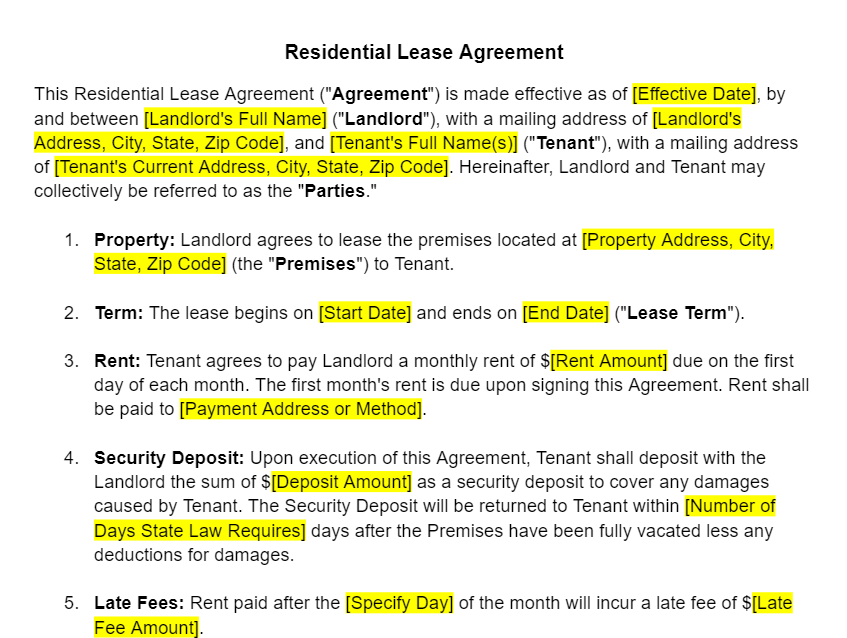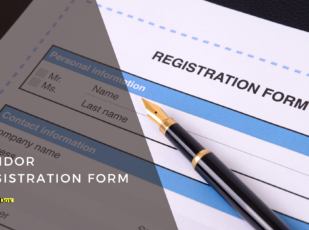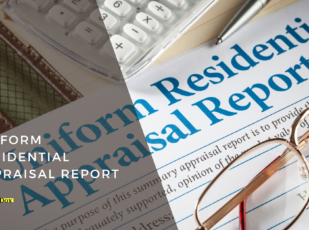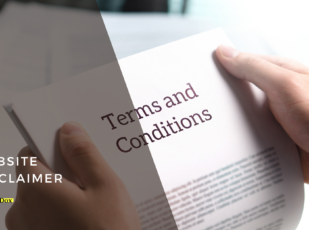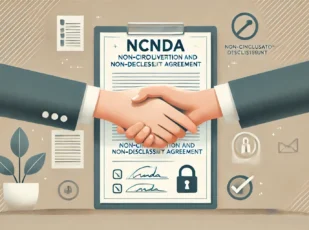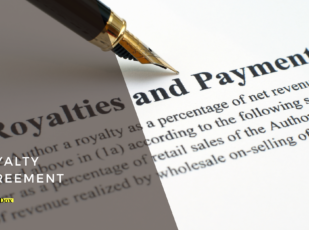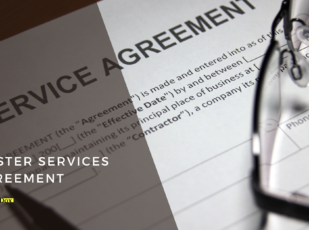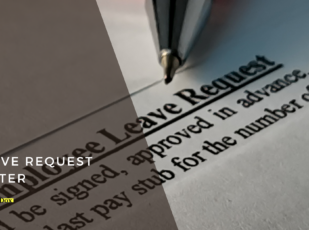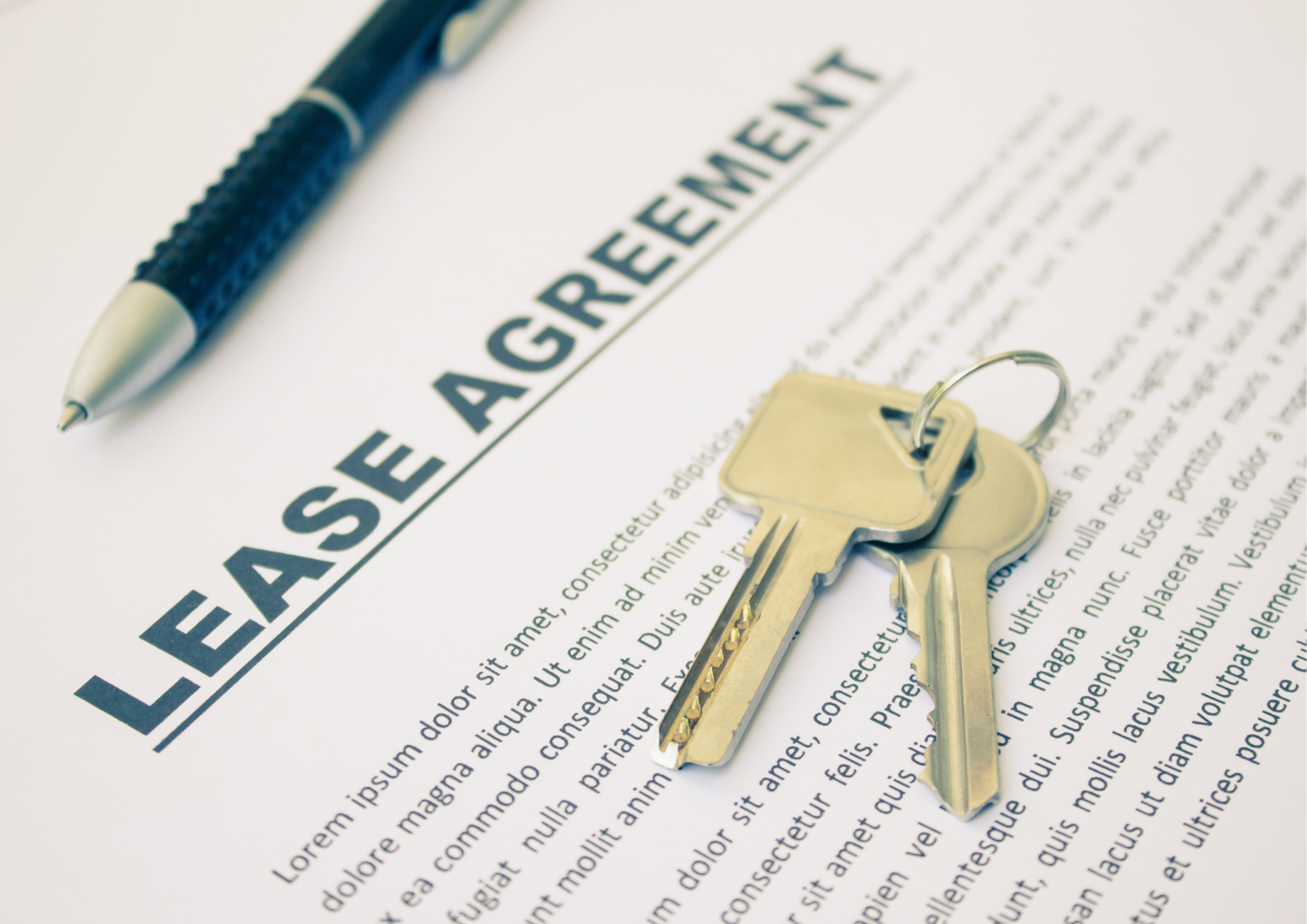
Residential Lease Agreement Template
8 Downloads
Real Estate
December 19, 2024
Sayantani Dutta
The clarity and comprehensiveness of the contract are the most important considerations when it comes to entering into a housing agreement. And a tool that simplifies this process, while also ensuring legal protection for all parties involved, is the Residential Lease Agreement. This agreement is an essential document for landlords and tenants alike—providing a foundation for a mutually beneficial and legally sound living arrangement.
Mostly, the agreement applies to all types of month-to-month tenancy requirements and specifies all occupancy-related terms and conditions between the landlord and tenant, such as the security deposit that the tenant has to pay, any late fees that will be applied to delayed rent payments, and any other relevant addendum that applies to the renter.
In this article, we are going to discuss the importance and makeup of this vital real estate document, as well as its role in residential leasing. We will also touch upon the many pitfalls of relying on an inadequate template to draft your final Residential Lease Agreement before introducing a superior alternative from FreshDox.com that is vetted by legal experts specializing in the management of residential property.
So, without further ado, let’s dive right into it!
What is a Residential Lease Agreement?
A Residential Lease Agreement is a legally binding document that outlines the lease terms and conditions related to all aspects of tenancy, such as the monthly rent and the due date for paying that rent. It goes above and beyond the basics to also indemnify the landlord and accomplish a few other, legally vital tasks—such as strictly disallowing the tenant to sublet the rental property.
The document specifies all of these terms under which the tenant can rent property from a landlord. And if any of the terms are violated, the rental lease agreement can be terminated and the landlord-tenant relationship formally ended.
The agreement also specifies the basics, such as the duration of the lease, policies regarding pets, maintenance responsibilities, move-in and move-out procedures, grace period for late rent payments, security deposit amount, and other crucial terms.
Any landlord who wishes to lease their personal property for a period of time on a rent basis needs this agreement to ensure that both parties have a clear understanding of their rights and obligations. More importantly, the agreement serves as the written notice that can be invoked to end the lease if a term is violated—for example, if the tenant has caused some damage to the property.
Why is a Residential Lease Agreement Important?
Well, if you wish to rent, you are required by law to have a residential lease agreement in place. Of course, the specific law differs from state to state—for example, the terms might need a little bit of tweaking when drafting an agreement for Florida compared to, let’s say, New Jersey. As such, this document is pretty important.
In fact, the importance of a well-drafted residential lease agreement cannot be overstated. For starters, it serves as the legal foundation of the landlord-tenant relationship. As such, it prevents any misunderstanding or dispute by clearly delineating each party’s responsibilities and obligations. This can save both parties from expensive attorney fees by preventing disputes in the first place.
Also, for landlords, this agreement provides a straightforward mechanism to protect their property and investment, whether it is a piece of country real estate or a condominium in a major city. On the other hand, for tenants, the lease agreement ensures the stability of their living conditions, outlines their rights, and provides a legal basis for any landlord-oriented obligations and responsibilities, if applicable.
Furthermore, such a comprehensive agreement is instrumental in establishing the procedures for dealing with potential issues such as late payments, property damage, and maintenance requests. There are often several important obligations that the landlords or the tenants have. If there is no legal basis for these obligations, then they cannot be enforced. The residential lease agreement is that piece of legal document that makes it all practical.
Consequence of Not Having a Good Residential Lease Agreement
Needless to say, neglecting the quality of a rental agreement can easily lead to significant legal and financial complications for both tenants and property managers. The rental contract needs to be comprehensive to be enforceable and all-encompassing—two key requirements to avoid disputes down the line.
As such, an inadequately detailed agreement might not cover essential clauses such as dispute resolution, property maintenance, or tenant’s rights such as those related to privacy—leaving room for misunderstandings, ambiguities, and most importantly, legal disputes.
That is why we highly recommend you steer clear of inadequate templates. Relying on these generic, free templates found online is often risky. These templates are highly likely to fail to comply with specific state laws or address the unique aspects of the property and agreement terms.
This oversight, seemingly harmless at first glance, can quickly turn into a massive pain in the back, resulting in enforceability issues, tenant disputes, and potentially costly legal battles over the rights, terms, and conditions of the original agreement.
What are the Key Elements of a Residential Lease Agreement?
To ensure that the residential lease agreement is comprehensive, effective, and legally binding, you need to ensure that there are a few key components available within it. These components include, but might not be limited to:
- Identification: The agreement often begins with the proper identification of both parties involved and the property address.
- Term: The lease term and renewal options are discussed next. Normally, the clause stipulates that if the lease is not renewed within a particular number of days, then it can lead to the end of the lease itself.
- Rent: You also need to discuss the rent amount, security deposit, and other financial terms related to the month-to-month lease. Also include the clauses for late fees applied on rent due.
- Policies: Every property comes with its own set of policies. These should be mentioned clearly in the residential lease agreement to avoid problems. For example, some common policies are for pets, subletting, and smoking. This is more detailed and nuanced in the case of a commercial lease agreement than a fixed-term lease for a residential property.
- Maintenance: The landlord often has responsibilities, duties, or obligations, even though the possession of the premises is handled by the tenant. While the tenant is supposed to have some basic regard for cleanliness and decorum, the lease agreement should clearly define the maintenance and repair responsibilities of the property manager, and which type or extent of repair and maintenance does not fall under their purview.
- Eviction: Next, talk about reasonable notice periods and eviction procedures. Basically, these procedures outline the ways in which the property can be requested or forced to vacate.
- Termination: Before concluding with the signatures of both landlord and tenant for mutual agreement, the residential lease agreement also discusses all the terms and conditions surrounding the termination of the agreement and any breach or violation that can lead to potential eviction from the premises.
Ensuring all this is important. It is a one-time task—so be as detailed and comprehensive as you can. After all, you are only protecting yourself as a landlord and giving more information to the tenants about what they are supposed to do and what they are prohibited from.
FreshDox.com’s Residential Lease Agreement Template
Understanding the importance of a solid residential lease agreement and the difficulties in drafting one, FreshDox.com offers a solution that makes your life easy. We have a professionally crafted Residential Lease Agreement Template designed to meet the needs of both landlords and tenants. Our template covers all legal bases and the necessary terms to ensure your lease is comprehensive, compliant with state laws, and more importantly, tailored to your specific property.
When you choose to sign up on FreshDox.com, you are getting the benefit of the expertise of legal professionals. This ensures that your Residential Lease Agreement is rock-solid and of the highest quality and legal standard.
Here at FreshDox.com, we believe in your convenience. With that in mind, we offer a couple of membership plans to cover multiple needs and a 14-day trial period allowing new users to test those plans! Whether you are managing a single property or a portfolio, we have the right resources that you need to create legally sound, effective lease agreements.
Using this trial, you can experience both our plans—Basic and Premium. The Basic Plan is ideal for anyone with a short-term need, as it allows you to download up to three document templates per month. The Premium Plan is ideal for those with ongoing needs or multiple properties. Both of our plans offer full customizability for all of our legal, professional, and business-related document templates that are comprehensive and legally vetted. You can download the templates or your final drafts in Word and PDF formats.
We help you prioritize quality when it comes to drafting a rental contract. With FreshDox.com, you can protect your property, rights, and peace of mind. So, avoid the pitfalls of generic, unreliable templates by choosing the professional, legally comprehensive Residential Lease Agreement Template by FreshDox.com today!
Popular searches:
- Residential Lease Agreement Template pdf
- Residential Lease Agreement Template sample
- Residential Lease Agreement Template download
- Residential Lease Agreement Template format
- Residential Lease Agreement Template template
- Residential Lease Agreement Template word
- Residential Lease Agreement Template free
Related Templates
Discover more templates that align with your needs and preferences.

Ready to Sign Up?
Sign up for FreshDox.com’s 7-day trial and discover why so many individuals and businesses trust us for their legal document template needs.
- Cancel any time
- 7-day free trial
- From 300+ Customer Reviews

